Early access MMO Pax Dei has launched without its most exciting features, so it needs to convince players to stick around
At the moment, it's a fairly generic survival crafting game, but it could become so much more.
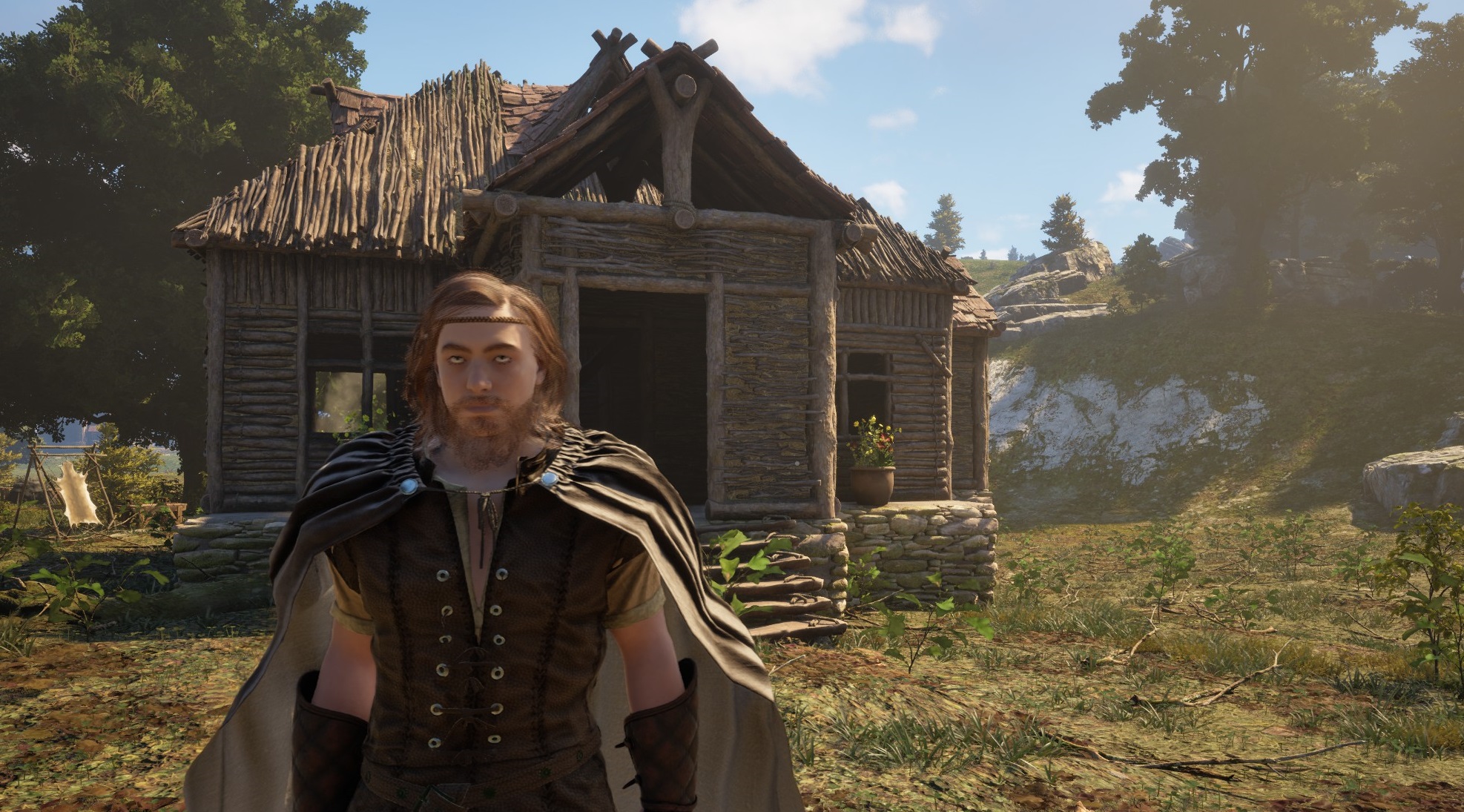
Having played some of the alpha, I knew what to expect when I hopped into Pax Dei's early access build yesterday. But I was still a wee bit disappointed, because I know what developer Mainframe Industries is planning, and I desperately want to play that version of the game. Right now, it's a multiplayer survival deal, but the team's goal is to transform it into a social MMO full of competing kingdoms, where players run everything from businesses to religions.
The version that exists now is a logical starting point. Before players can run their own societies and develop an economy, they need to be able to build homes and craft goods. These foundational features are essential, it's just unfortunate that they are also the most generic part of the game.
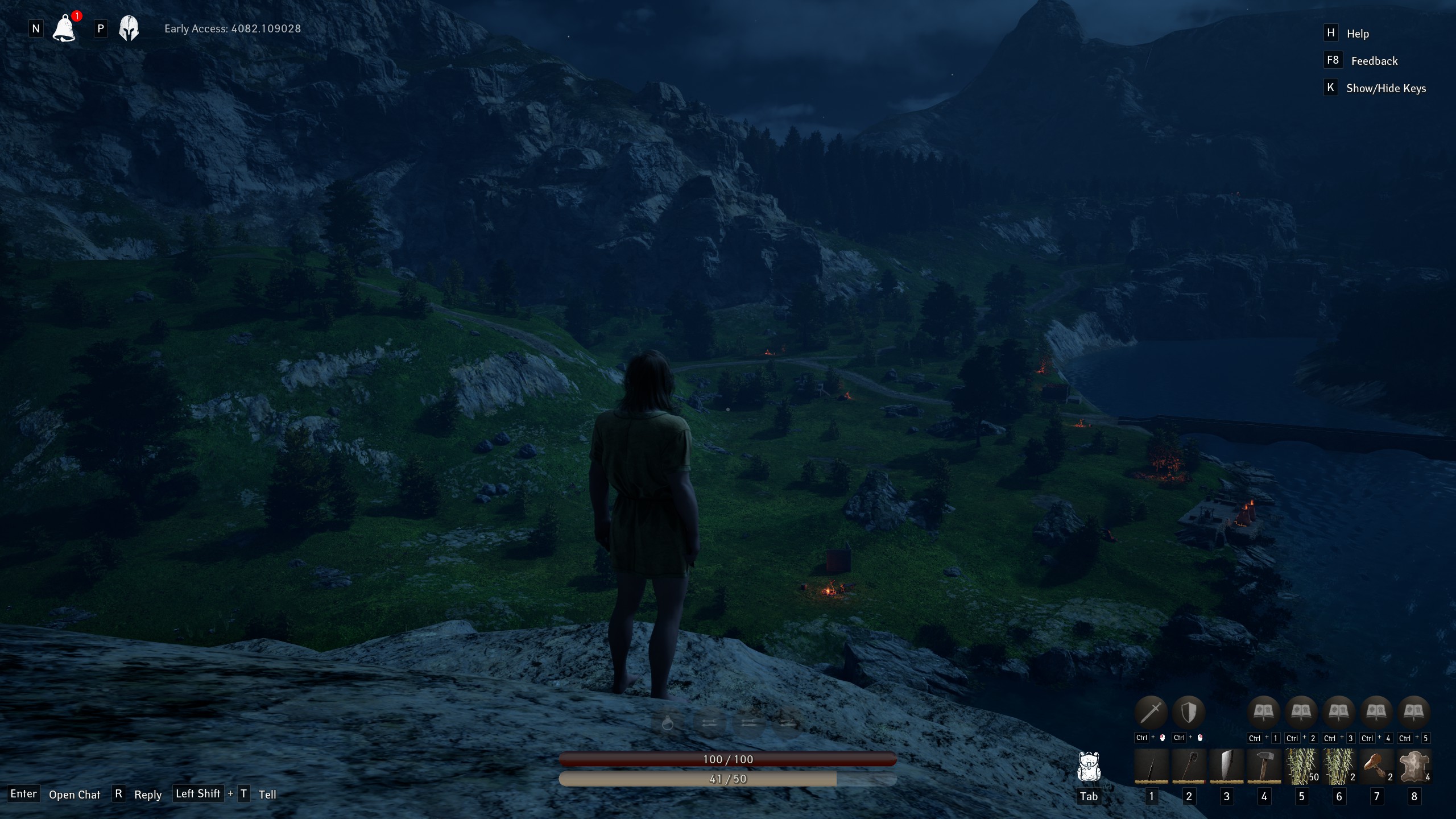
One significant difference between the early access build and the alpha is the ease with which you can progress. Building a home and getting all of your crafting stations working away can still be a bit of a slog, but it takes a lot less time than it used to. For instance, it took me the better part of a day to create one pair of trousers in the alpha, leaving me little room for anything else. Yesterday, in the same space of time, I built an entire house and fully clothed myself.
But what are these minor achievements in service of? That's a question I think a lot of players are going to be asking right now, and sadly the answer is "Not a lot". You can build a home and craft a wide variety of items, but there are few big objectives to work towards.
You can deck yourself out in armour—which will take a while, but less if you join a clan—and then get into some PvP scuffles in the dedicated areas; you can focus on some crafting or survival skills and keep improving them; or you can keep upgrading your home, making it look fancier and fancier, but there's not much beyond that.
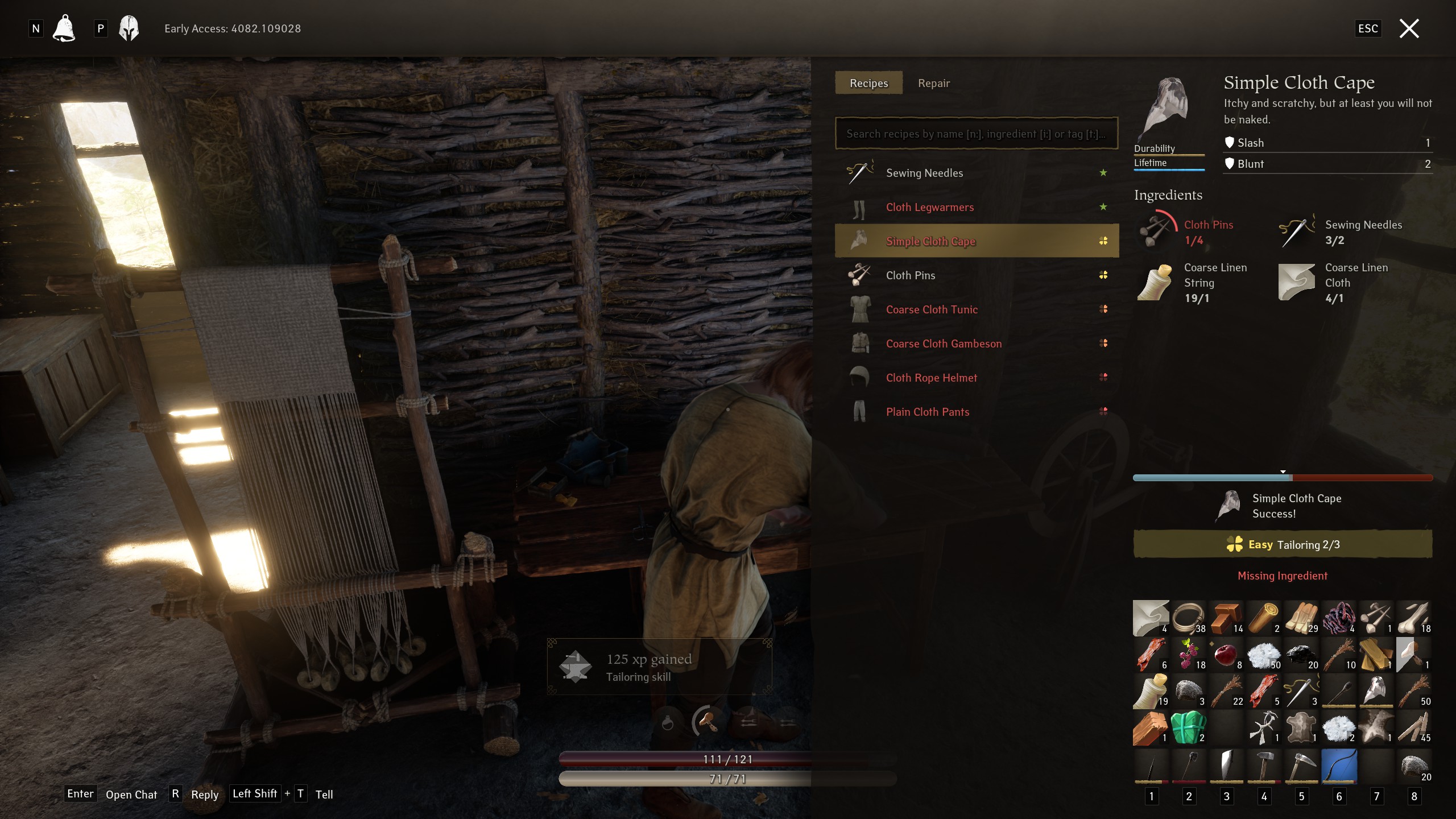
Players will likely have the most fun by finding a big group to play with. This way you can link up lots and lots of building plots and create villages, towns or huge castles—and with loads of people working together you can complete significant projects pretty quickly. This kind of collaboration is inherently fun, but you'll still quickly hit a brick wall. After you've got your production chain perfected and a fortress looming over the landscape, there's nowhere else to go.
For now, this is going to be enough for some players. Building and collaboration is its own reward. And to be clear, I've genuinely been having quite a lot of fun—even as someone who's burned out on survival games. The crafting system is labour intensive, but it's robust, and I've yet to hit a point where I lose my momentum. There's always something to do, to create. And the massively multiplayer side of things, even without a lot of the traditional MMO trappings, looms large.
The biggest gaming news, reviews and hardware deals
Keep up to date with the most important stories and the best deals, as picked by the PC Gamer team.
I've spent a lot of time just walking around the world, seeing what other players are getting up to. I took a break from crafting to explore a village that had sprouted up in a spot where previously there had only been empty fields. I asked a heavily armoured player how he got geared up so quickly—frankly, I was pretty damn jealous, stuck as I was in a tunic that looked itchy. I got directions to a clay deposit when I needed to add the finishing touches to my home. I went on an impromptu hunting expedition with some randos. Nothing particularly exciting, sure, but already we're getting a glimpse of in-game communities developing. But a lot of MMO veterans are going to be expecting more. And while more is coming, it's going to take a while.
Work in progress
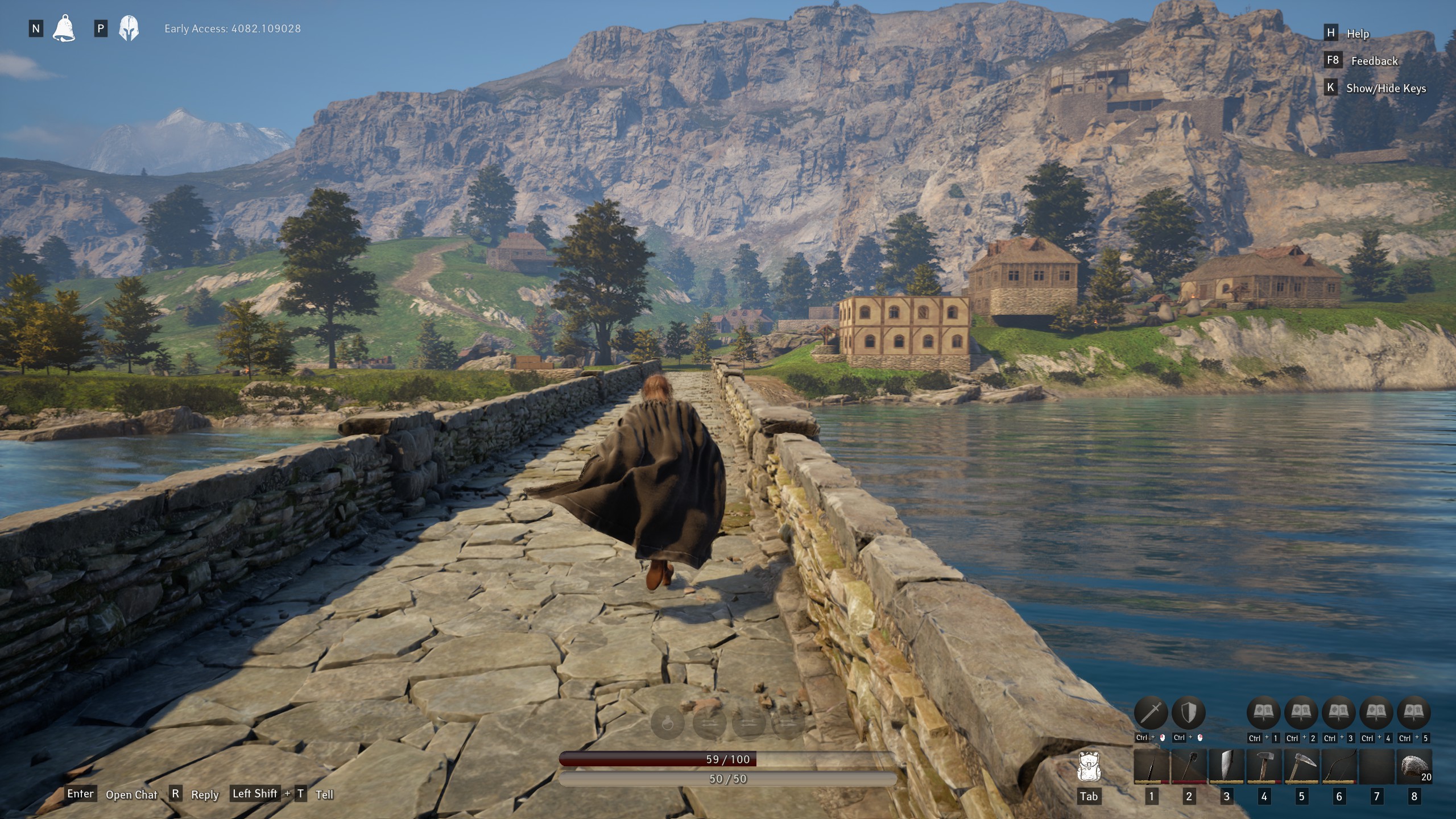
Right now the focus is on the Homestead pillar, so it's all about crafting, exploring and building. During early access, Mainframe Industries is going to be adding signage, expanded building sets, new furniture, recipe tracking and farming. Then there's the Adventure pillar—essentially the PvE side of things—which is pretty lacklustre right now, not really pushing you to explore caves or delve into dungeons. It will be fleshed out, however, with the introduction of new spells, combat improvements, new enemies, new gear and the unveiling of the world's lore.
Most of the exciting stuff is part of the Civilisation pillar. At the moment, we've got clans, but no other features. Eventually, though, we'll have markets and a player-run economy, roles like knights and soldiers, and the beginnings of the religion system: altars and miracles. When these things actually appear remains to be seen, however, and while they are being developed Mainframe Industries needs players to stick around.
Players are the game's most important resource. None of these systems will work without a lot of people interacting with them. But it's going to be an uphill struggle for Pax Dei to maintain the population required. And with Steam user reviews sitting at "Mixed", bringing in new players is going to be harder. This is not a free-to-play deal, and folk are going to be less likely to invest in its future without a positive rating.
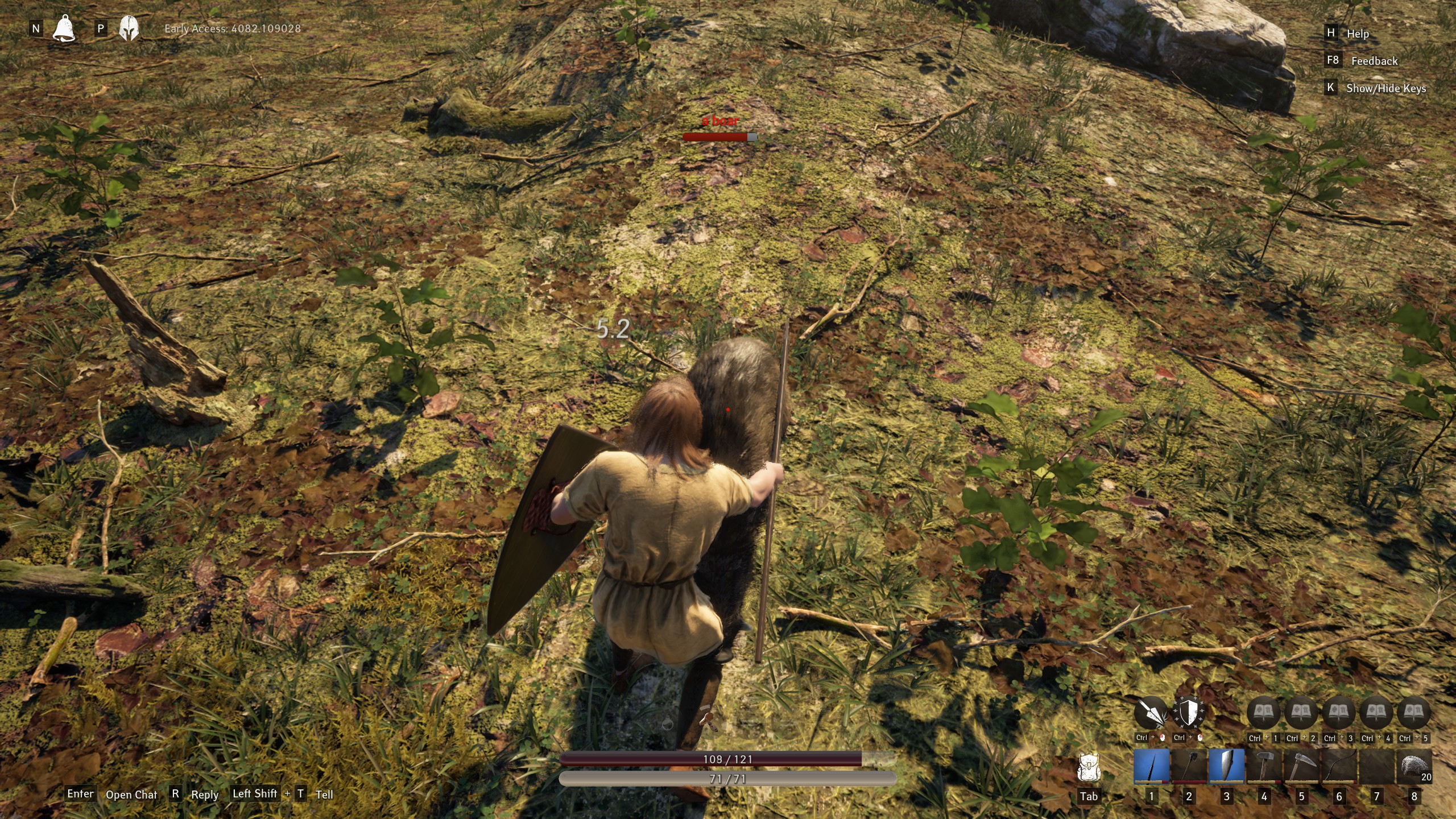
I think an extended open beta would have served the game better. The moment you stick a price on something, expectations rise dramatically, even if players know the game is still in development. Mainframe Industries says it's moved from closed alpha to early access to open things up to more players, but an open beta would have brought in even more by removing all obstacles. What it wouldn't do, however, is fund the game's continued development.
Mainframe Industries wants Pax Dei to join games like EVE Online and World of Warcraft in the pantheon of decade-spanning MMOs, but it has a difficult road ahead of it. Still, I'm cautiously optimistic. Pax Dei's foundations might not be the most riveting, but they seem pretty solid, and the team behind it is full of legacy MMO developers. It's bursting with potential, but players need more than exciting promises if they are going to keep spending their days inside the game.

Fraser is the UK online editor and has actually met The Internet in person. With over a decade of experience, he's been around the block a few times, serving as a freelancer, news editor and prolific reviewer. Strategy games have been a 30-year-long obsession, from tiny RTSs to sprawling political sims, and he never turns down the chance to rave about Total War or Crusader Kings. He's also been known to set up shop in the latest MMO and likes to wind down with an endlessly deep, systemic RPG. These days, when he's not editing, he can usually be found writing features that are 1,000 words too long or talking about his dog.

